
Culture
17:33, 08-Feb-2018
Xiao Nian: The Prologue of the Spring Festival
By Ai Yan
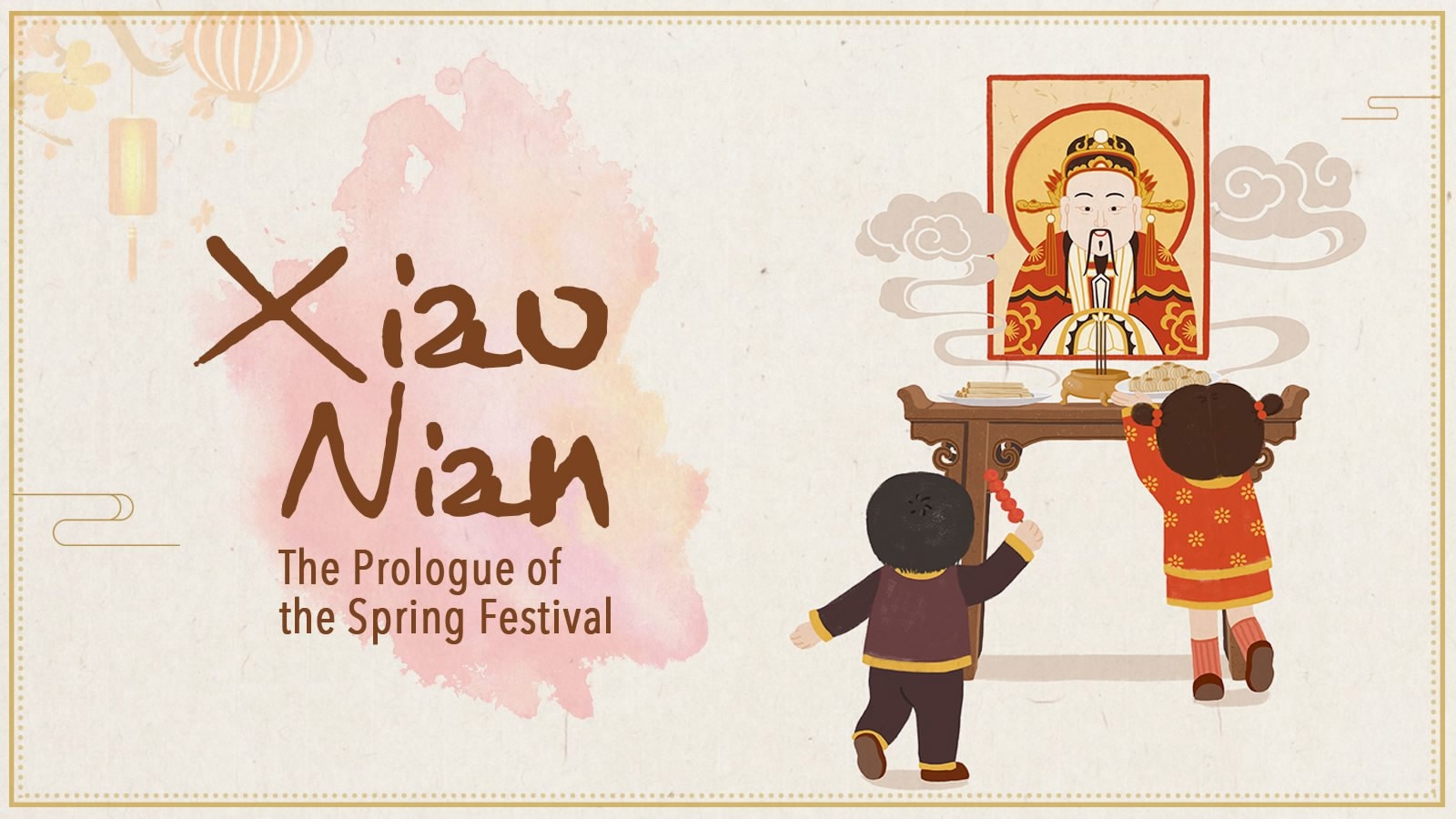
With the Spring Festival around the corner, the Chinese began their festive celebrations on Thursday, which marks the 23rd day of the last lunar month Layue, more widely known as Xiao Nian.
Xiao Nian, literally meaning “Minor New Year” in Chinese, is always considered to be the prologue of the Spring Festival, which kicks off a series of preparations that need to be done before the coming of the Spring Festival’s Eve.
Make candies and worship the Kitchen God
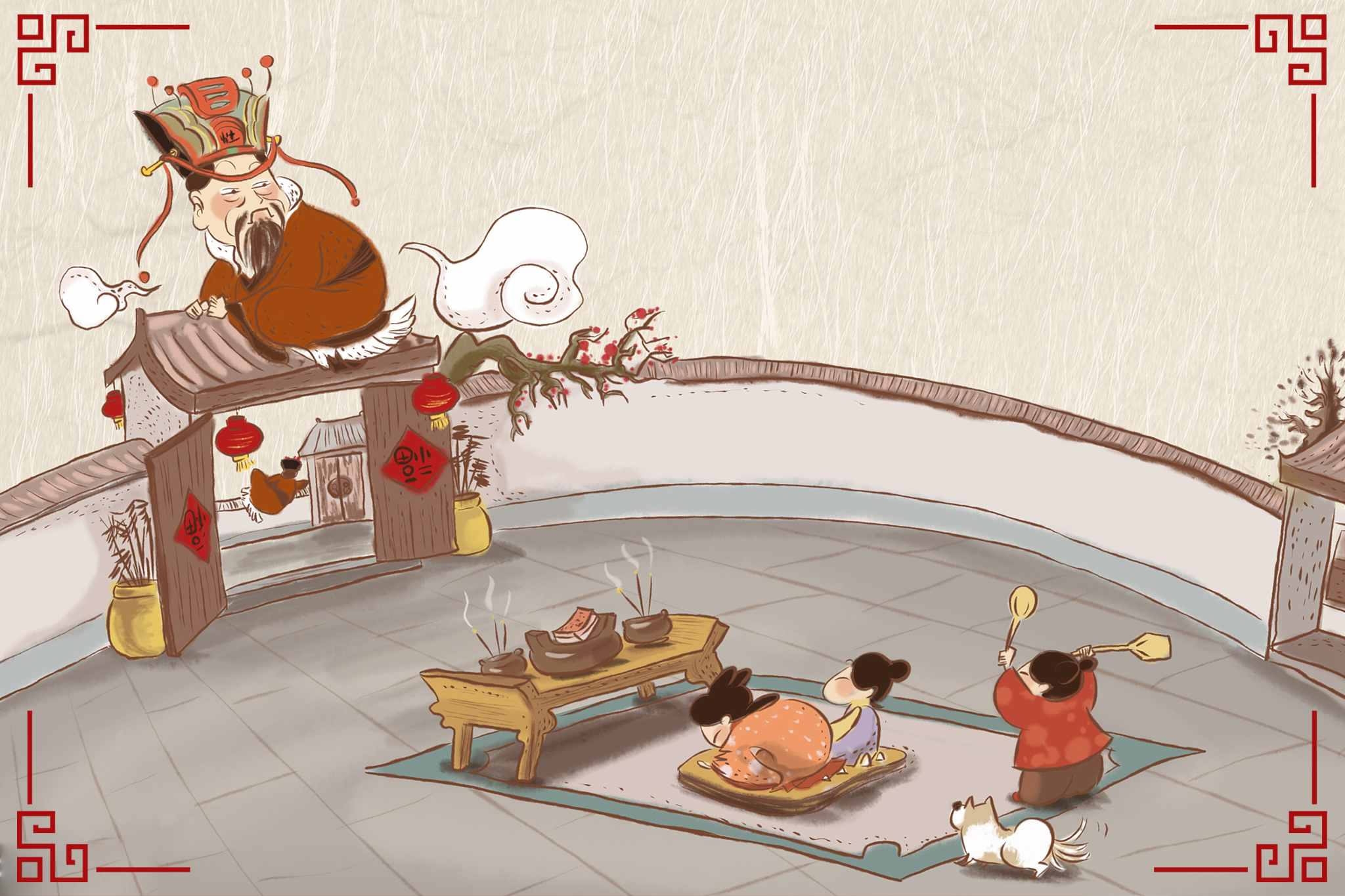
A cartoon painting of people giving offering to the Kitchen God. /CGTN Photo
A cartoon painting of people giving offering to the Kitchen God. /CGTN Photo
The day is also known as the day to honor the Kitchen God. According to Chinese Taoist mythology, the Kitchen God returns to heaven on this day to report to the Jade Emperor, the God of Heaven, on the situation of every household during the past lunar year. The Jade Emperor will then decide whether to bestow luck on or punish the families.
People will offer various foods, especially candies, to the Kitchen God to make sure that he won’t speak ill of their families. Many rural households in China still have paintings of the Kitchen God above their fireplaces.
Sweep the dust
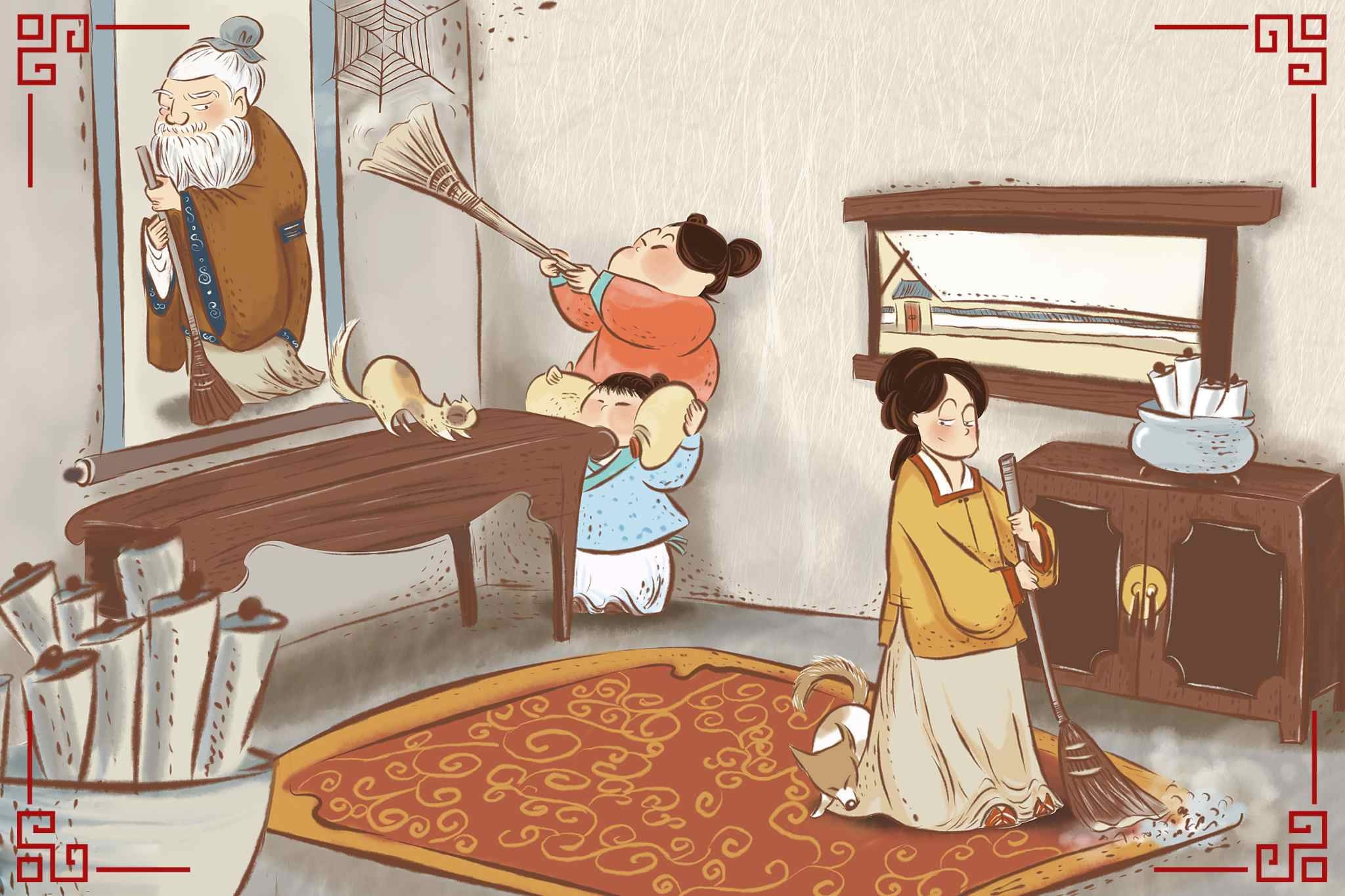
Sweep the dust for the house. /CGTN Photo
Sweep the dust for the house. /CGTN Photo
The Xiao Nian is widely marked in the northern areas of China on the 23rd of Layue, but in the southern areas, it is usually marked on the 24th of Layue. There is a Chinese tradition of cleaning the house on the day, which is named “Sweeping the dust”.
In Chinese, the character for “dust” is a homophone of the character for “the old”. By giving the house a thorough cleanse on the day, Chinese people believe that this would rid them of their poverty and bad luck from the previous year, so as to welcome a prosperous new year.
Write couplets and “Fu” character
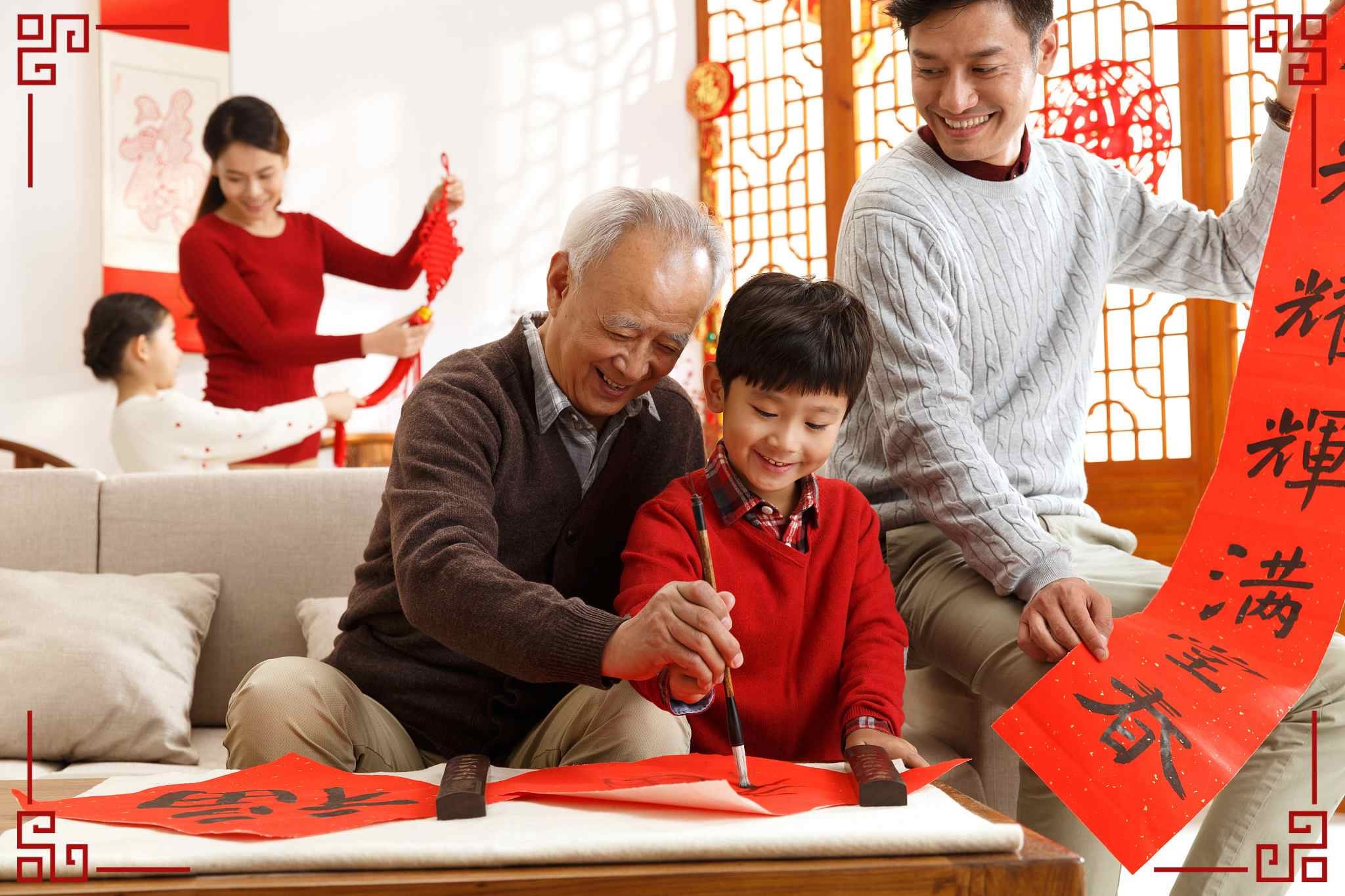
Write couplet and Fu character. /CGTN Photo
Write couplet and Fu character. /CGTN Photo
Couplets and the “Fu” character are both must for the Spring Festival in China. A couplets is a pair of lines of poetry bearing auspicious meaning or wishes written in calligraphy on two rolls of red paper. Before the Spring Festival, every family would put up a pair of couplets on both sides of their doors.
In the ancient days, the couplets were usually written by neighborhood calligraphers. Writing a pair of good couplets could also demonstrate the literary talents of the scholars. But today, it is not difficult to find a pair of printed couplets at the supermarket.
Paper-cut for New Year’s decoration
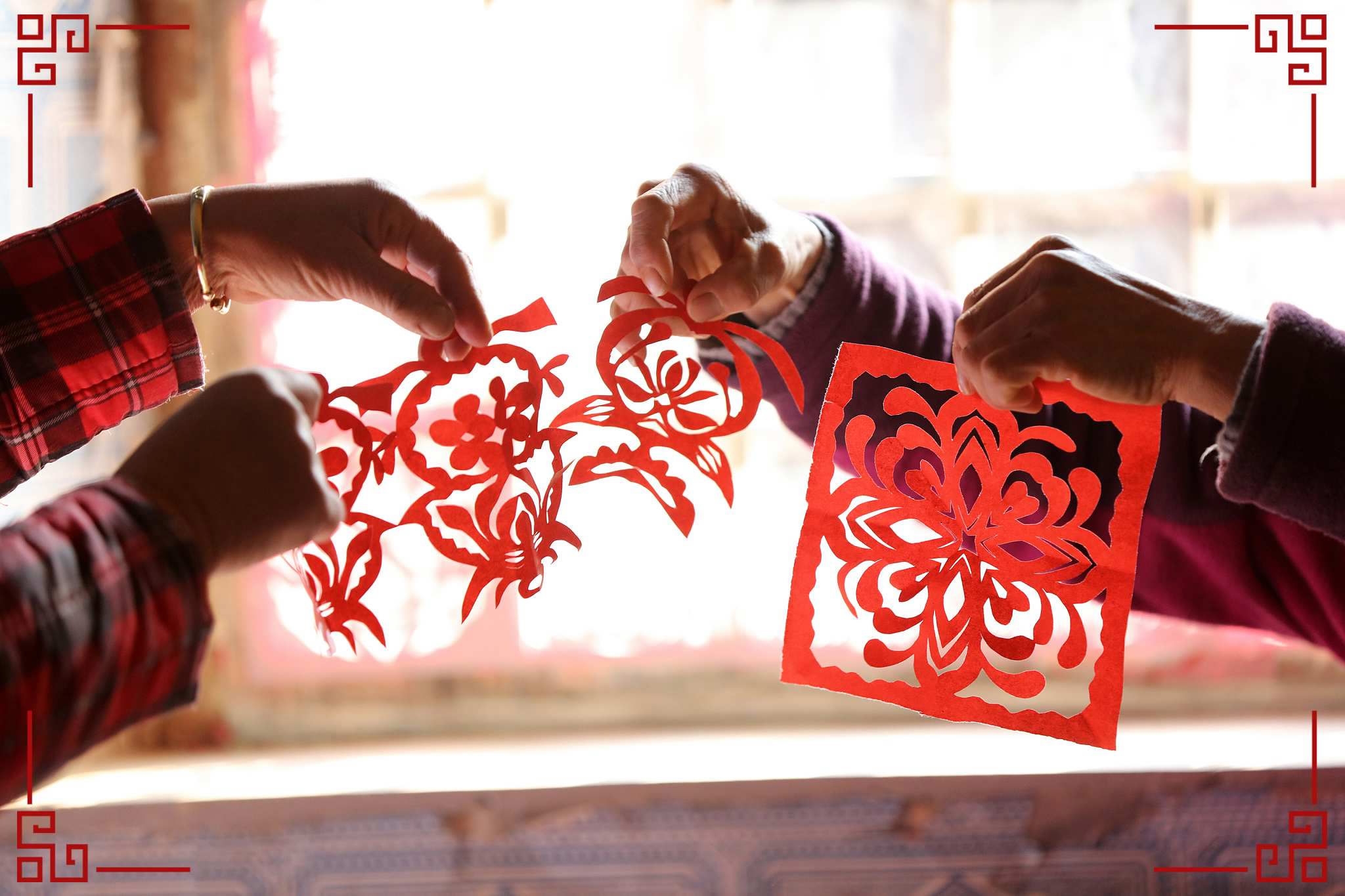
Paper-cuts for window decoration. /CGTN Photo
Paper-cuts for window decoration. /CGTN Photo
Similar to the couplets, paper-cuts are used as window decorations to create a festive atmosphere. With a pair of scissors and a piece of red paper, craftsmen could create a variety of different decorations, from "Fu" characters to Zodiac dogs, or decorative patterns featuring flowers and other auspicious elements.
There are also manufactured paper-cut works in any supermarkets in China during the Spring Festival, but many still prefer to buy hand-made ones, out of respect to the traditions and craftsmanship.
Haircut before the Spring Festival
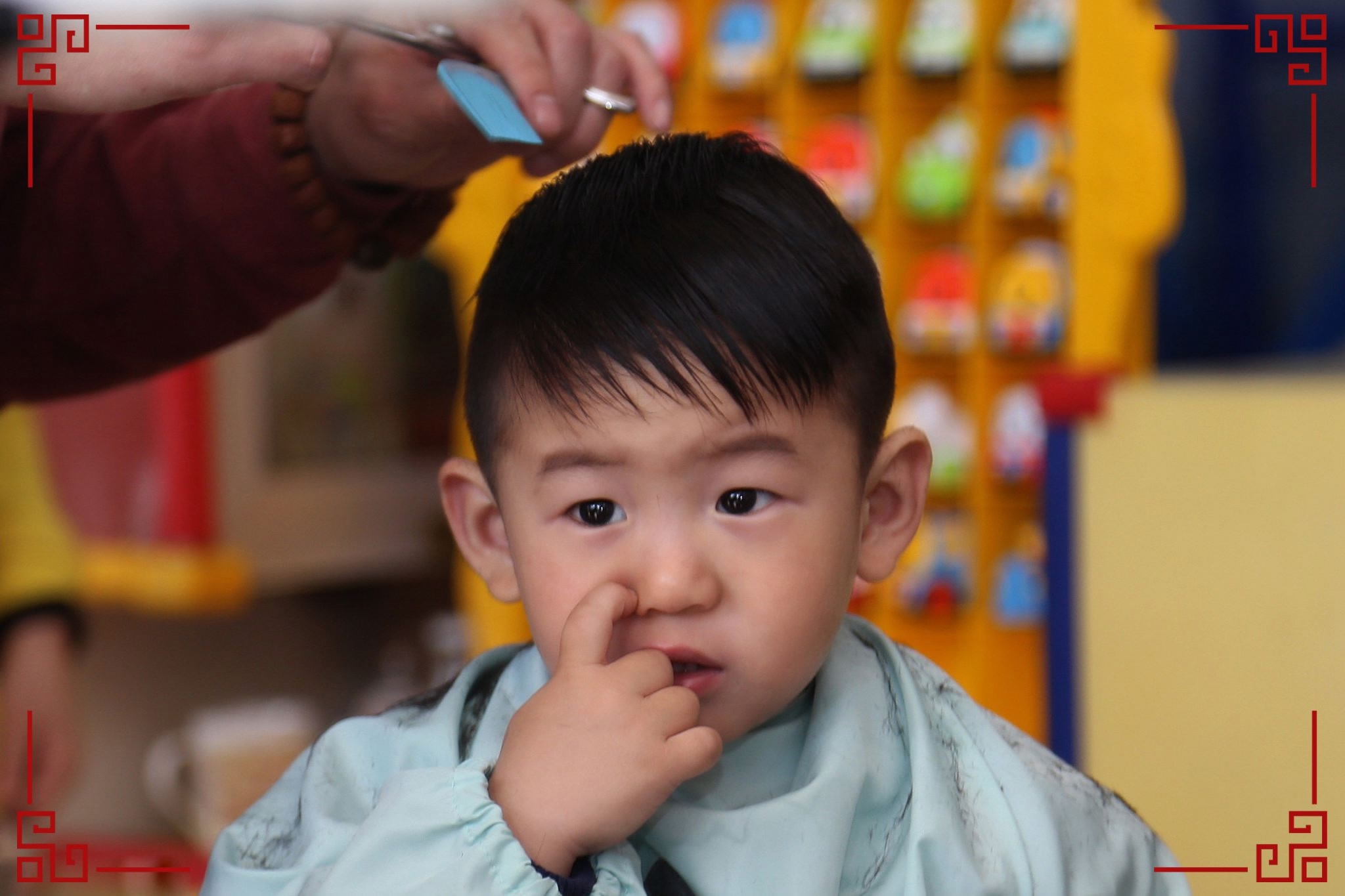
A child having haircut. /CGTN Photo
A child having haircut. /CGTN Photo
Having a haircut before the Spring Festival is also an ancient tradition, for the ancient Chinese believed that a haircut in the first month of the Lunar New Year would bring bad luck. People usually wait until the second lunar month to have their hair cut again.
In order to fit into the new clothes for the festival, a haircut is highly recommended beforehand. But it is also in accordance with people’s own wishes of getting dressed up to meet friends and relatives, and that the habit has been maintained until today.
The habits and traditions of the Xiao Nian are slightly different across China, but people’s wishes and expectations for a new lunar year are similar. It is time to welcome the Spring Festival and the Chinese Year of the Dog.

SITEMAP
Copyright © 2018 CGTN. Beijing ICP prepared NO.16065310-3
Copyright © 2018 CGTN. Beijing ICP prepared NO.16065310-3